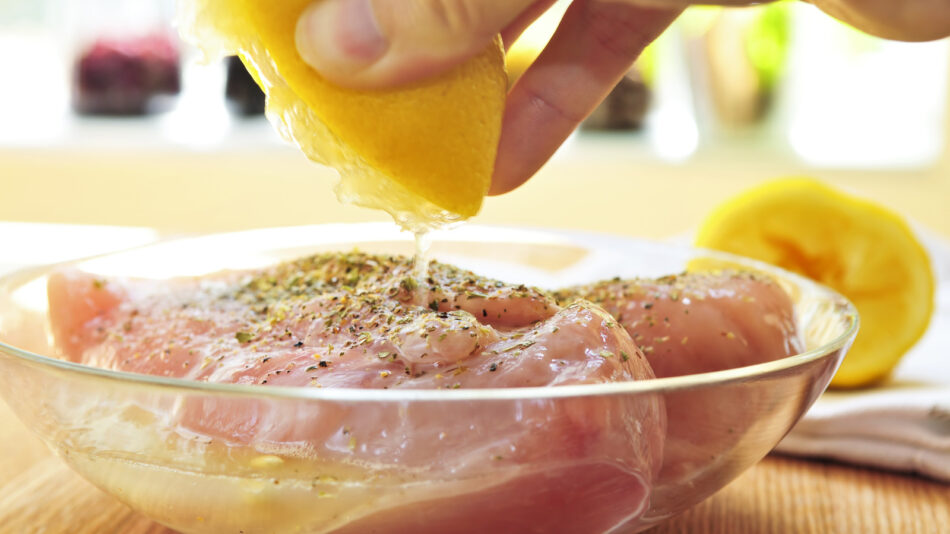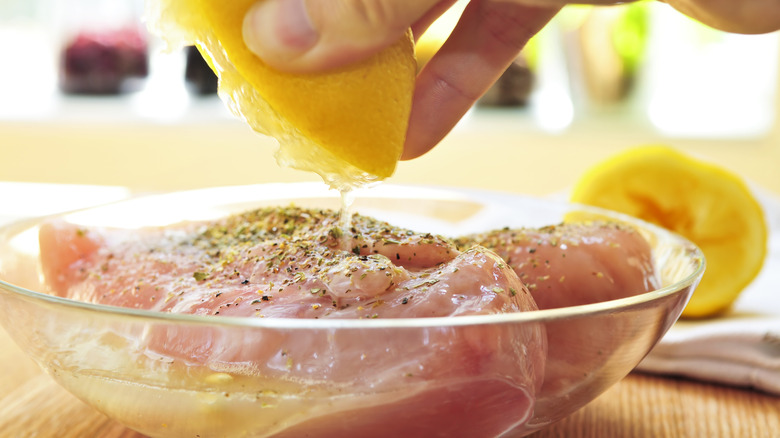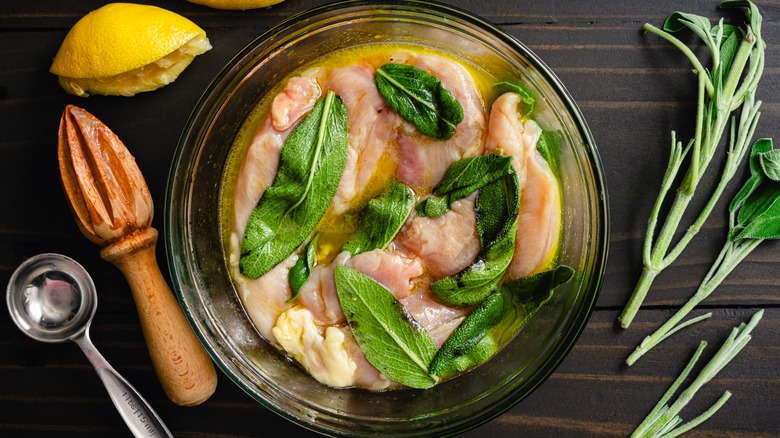As much as we all may love beef or pork, chicken is probably the most used meat in home kitchens, and it doesn’t have any better friend than a citrus or vinegar marinade. Affordable, easy, and adaptable to many different recipes and flavors, chicken is the ultimate utility player for weeknight dinners, but it doesn’t usually inspire the same love as other meats because of its reputation for being blander and drier.
This isn’t true of every cut of chicken, of course, but more than other meat, it does require a little extra something to really sing. That’s why we asked an expert, Eugene Liberman, the owner of Moscow on the Hill, about why so many chicken recipes call for a marinade using citrus or vinegar.
Liberman gave us two big benefits to citrus and vinegar marinades. He first explained, “It brings acidity to the dish, which goes a long way in balancing flavors like salt and fat.” Just like salt, acidic ingredients don’t only add their own flavors to a dish, they modify other ingredients as well. Unlike salt, which amps up flavor, acid actually counteracts things like salt and sweetness. That’s a good thing, though, because bringing all the disparate flavors in a recipe into balance helps each one stand out and not overwhelm the others, making everything taste better. This even goes for more wild tastes in ingredients being able to shine more, with Liberman saying that acid “brings out the herbal notes in other flavors like garlic and onion.”
Citrus and vinegar marinades boost the flavor of chicken while also tenderizing it
While the flavor boost that mild chicken gets from acidic marinades is great, it’s only half the benefit. Liberman also notes, “It tenderizes proteins, making the chicken more tender.” What’s great is that citrus and vinegar can do this for both lean chicken breasts and fattier cuts like thighs too. For normal meat proteins acid helps “denature” proteins by lowering the pH level, which changes their shape.
These altered proteins have a greater capacity to retain water, which keeps lean cuts of chicken juicy and tender. However, acids also help break down collagen as well, which means that cuts with more connective tissue like wings and thighs will also be tenderized by an acidic marinade. They really do benefit every part of a chicken equally.
The one word of caution is that acidic marinades are also potent, so while these benefits are great for chicken, you don’t want to let it sit too long, because your meat will go from tender to mushy. This is especially true of marinades using vinegar, which contains strong acetic acids. So with a marinated chicken recipe it’s best to stick to a shorter time frame of two to three hours, and not go over four, as this will still impart most of the marinade’s benefits. It might be hard to believe, but with the amazing benefits of citrus and vinegar, two hours is enough for the best chicken you’ve ever made.








